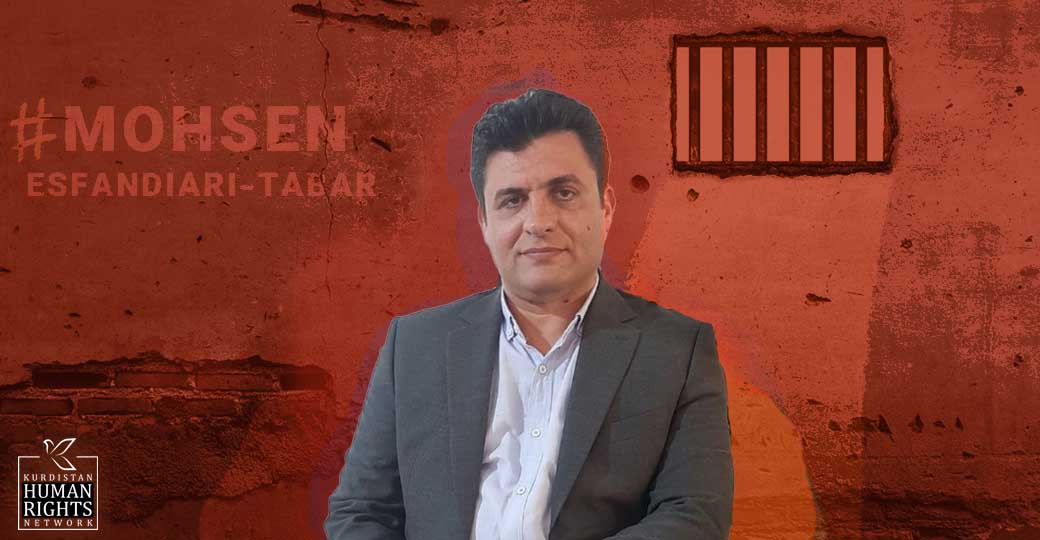Arrest
Mohsen Esfandiari-Tabar, a 38-year-old navy lieutenant colonel, was arrested by the Intelligence Organisation of the Islamic Revolutionary Guard Corps (IRGC) on 29 July as he left his family home in Tehran, and a few hours later informed his wife by telephone that he was being transferred to Kermanshah, Kermanshah Province.
He had previously been summoned and threatened by the security services in connection with the Newroz celebrations in Gilan-e Gharb.
On 29 August, he was transferred from the detention centre of the Intelligence Organisation the IRGC at the Nabi Akram military base in Kermanshah to the Criminal Investigation Department’s Central Detention Facility in the city.
Defendant’s Rights
Following the arrest of Esfandiari and several others from Gilan-e-Gharb in August, Hamidreza Karimi, the Public and Revolutionary Prosecutor of Kermanshah, spoke to state media on 15 August and said: “For some time now, two channels on the social networks Instagram and Telegram have been operating in one of the western cities of the province with the aim of dividing people. In view of the activities of these two channels, security and intelligence forces have taken action under a court order to identify the administrators of these channels.”
Esfandiari was charged by Branch 16 of the Kermanshah Public Prosecutor’s Office, under the supervision of Arash Bahmani, with “disturbing public opinion”.
During his detention at the IRGC Intelligence Organisation and Kermanshah Criminal Investigation Department’s detention centres, he was pressured to confess to the alleged charges related to managing Telegram channels and Instagram pages.
He was also held in solitary confinement at the IRGC Intelligence Organisation’s facility.
During his detention, he was denied the right to meet with his family or to have access to legal representation.
Current Status
Esfandiari was provisionally released on bail of 20 billion rials (nearly 40,000 USD) on 8 September 2024.
Notes:
1. Article 698 of the Islamic Penal Code: “Anyone who, with the intent to harm another person, disturb public opinion, or mislead official authorities, makes false statements or attributes actions contrary to the truth, either directly or indirectly, to an individual or legal entity, whether in a letter, complaint, correspondence, petition, report, or by distributing any kind of printed or handwritten materials, whether signed or unsigned, shall be sentenced to imprisonment from two months to two years or up to 74 lashes, regardless of whether the falsehood causes material or non-material harm to others. In addition to these penalties, if possible, the person’s reputation must be restored.”



